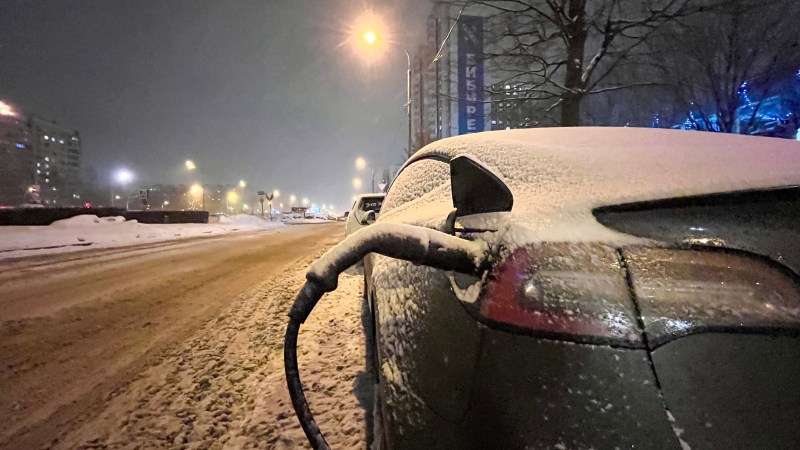
While the cold can affect both EVs and ICE vehicles in different ways, anyone who has spent enough time living in a cold-weather climate has experienced the untimely dread of getting into your car during a particularly heavy snowstorm, putting the car into reverse to back out of its parking spot, and feeling nothing but spinning tires when you hit the accelerator. That distinct sound of the rubber whirring faster and faster, hopelessly grabbing at the compacting snow beneath it, and with each stab at the pedal, equal parts desperation and gloom vie to take over as the dominant emotion behind the wheel.
Thankfully, Pirelli has come out with some useful advice to help avoid this kind of disastrous situation in the future. While you might jump to the conclusion that a tiremaker would simply tell everyone always to have winter tires everywhere this side of San Diego in the summer, their recommendations are surprisingly objective and forthcoming.

All-season vs. winter tires
As the name suggests, all-season tires are made as a compromise between summer and winter tires. Understanding that the extra cost, time, and storage space having multiple season-specific tires can incur, these best-of-both-worlds tires have grooves that are deeper than standard summer tires but not as extreme as those of the winter variety, created to allow the channeling of water and snow from beneath the contact surface to improve traction.
There are inherent limitations with tires that are made to endure all conditions, however. Winter tires are designed with a softer compound that allows them to have better grip at very cold temperatures. But at higher temperatures, that compound degrades quickly and causes those tires to wear out much faster in warm weather.
All-season tires have to handle warm and cold weather, so their compound is firmer than that of winter tires but softer than summer tires. This structural composition comes with an inherent limit, however, as it cannot be extreme in either direction. Pirelli tells us that all-season tires have an optimal operating temperature range of 23 to 77 degrees Fahrenheit. But the caveat is that those colder temperatures become more hazardous if they are sustained over a longer period of time.
In short, all-season tires work well in severe conditions for short bursts, whereas winter tires are made explicitly to handle blistering cold weather and icy conditions for a much longer duration.

How do you tell what a winter tire is?
Anyone who has ever paid attention to the sidewall of a tire has seen a myriad of letters and numbers that make no sense to most. But true winter tires can be identified by having an M+S, M&S, or M-S marking, which stands for “mud and snow.” Beyond that, if that sidewall also happens to feature a 3MPF symbol, which stands for “three peak mountain with snowflake,” that means the tire has passed a specific test for driving in the snow.
The other important information to pay attention to on the sidewall is the maximum speed rating. Typically, snow tires have lower speed ratings than all-season or summer tires, so keeping this in mind is paramount.

Who should have winter tires?
One of the first questions many people will ask is whether or not snow tires are necessary if their vehicle is already fitted with all-season tires. Pirelli sums it up like this:
For those who drive long distances, face challenging winter conditions, and seek maximum performance, winter tires are the best choice. Designed to perform at their best in extreme conditions, such as with low temperatures and on snowy or icy roads, these tires offer shorter braking distances on both wet roads (up to 15%) and snowy roads (up to 50%) compared to summer tires. The tread design, with special sipes, collects and retains snow for better grip through the “snow-on-snow friction” effect.
Generally speaking, for anyone living in the northern or midwest states where snow, ice, and extreme cold are the norm during the winter months, it is better (and safer) to invest in a good set of winter tires. But for those who live in moderate climates and occasionally dabble in the mountains to ski or snowboard, all-season tires should be more than sufficient.
Unless you live in a very temperate climate for most of the year and don’t deal with much precipitation, switching to winter tires is never going to be a bad idea. If you have the financial means and physical space to store them, then the added traction and layer of safety these specialized tires provide is a worthwhile insurance policy. Don’t wait until your tires are spinning wildly in the blistering cold to wish you had them… you’ll thank yourself later.
Editors' Recommendations
- Check engine, tire pressure, and more: The most common car warning lights explained
- Do you really need EV specific tires?
- Chamberlain’s, Chemical Guys, and more: Treat your ride to the best car leather cleaners (so you don’t ruin your car’s interior)
- F1 loses the Alfa Romeo team (but history tells us they’ll be back)
- Honda is selling a $995 drivable suitcase-size electric scooter we can’t tell if we love or hate




